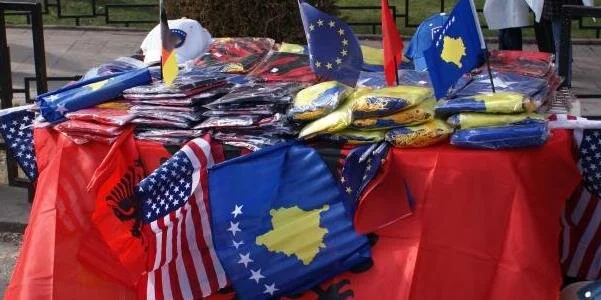Wishful Thinking about ICJ’s Kosovo Ruling
Kosovo’s path to independence has been a story of aspirations. Albanian Kosovars sought unlikely partition from Yugoslavia; with a little help from its friends, Kosovo achieved that aspiration. The US, EU, and UN Mission in Kosovo have aspired to build governing institutions from scratch, their Pygmalion of a new state that could one day be a legitimate member of the international community. And finally, the dreams of Kosovars for internationally-sanctioned independence seemed attainable after Kosovo’s declaration of independence in February 2008 and subsequent recognition by 69 UN member states. Kosovo’s supporters appeared vindicated by the International Court of Justice’s (ICJ) ruling on July 22 that Kosovo’s unilateral (and unprecedented) declaration of independence did not violate international law. Widely viewed as a victory for Kosovo, many Western Kosovo supporters saw the ruling as a harbinger of Serbia’s inevitable acquiescence and Kosovo’s wider acceptance into the international community.Yet aspirations that ignore reality veer into the territory of wishful thinking. Indeed, wishful thinking aptly describes sunny predictions for the ruling’s implications.As the last six weeks have shown, Kosovo remains far from widespread recognition and legitimacy. The day after the ICJ’s ruling, US Assistant Secretary of State Philip Gordon said that “many other dozens” of states had been awaiting the ruling before recognizing Kosovo’s independence. Despite the decision in Kosovo’s favor, the dozens Gordon anticipated have failed to materialize; in fact, not a single state has recognized Kosovo since the ruling.Rather than resolving the conflict between Serbia and Kosovo, the ruling has increased tensions between them. Belgrade has publicly rejected the ruling and continues to support the Serb population in Kosovo’s northern enclave of Mitrovica. On August 18, Kosovo’s government banned visits by Serbian officials to Kosovo, accusing them of political provocation. The ICJ ruling has not quieted simmering discontent among Serbs in northern Kosovo or Bosnia, who are allegedly considering their own independence declarations in order to unite with Serbia.The ICJ decision, itself, has already been criticized widely as politically motivated, and may do more to discredit the Court than legitimize Kosovo. Its reasoning requires some suspension of disbelief. For example, the ICJ ruled that Kosovo’s declaration did not violate UN Resolution 1244 because the Kosovo Assembly members who promulgated it were acting as private individuals rather than Kosovo’s governing body. The EU states opposed to Kosovo’s independence have not bought the argument, and have reiterated their opposition. China and Russia have again vowed to block Kosovo’s membership in the UN. So far, little has changed.The West’s aspirations for wider consensus about Kosovo may be admirable, but wishful thinking can be dangerous. Having ignored warning signs, Western powers and the UN were unprepared for 2004’s episode of anti-Serb violence in Kosovo. They underestimated Russia’s reaction to Kosovo’s independence, which Moscow cited as a precedent to justify its August 2008 invasion of Georgia and recognition of Abkhazia and South Ossetia’s independenceThe ICJ ruling could similarly catalyze violence in other separatist conflicts – regardless of Western powers’ insistence that Kosovo is “not a precedent” - complicating Kosovo’s path to further recognition. Furthermore, Kosovo’s internal divisions remain stark and its governmental institutions weak; overly optimistic assessments of Kosovo’s maturity could blind Western policymakers to mounting internal tensions. Indeed, Kosovo must still overcome great obstacles in order to achieve stability and perceived legitimacy.Kosovo’s de facto independence is indisputable and its eventual acceptance as a member of the international community likely. Yet to believe that the ICJ ruling will significantly shorten that road is simply wishful thinking.The photo in this article is being used under licensing by Google Images. The original source can be found here.
